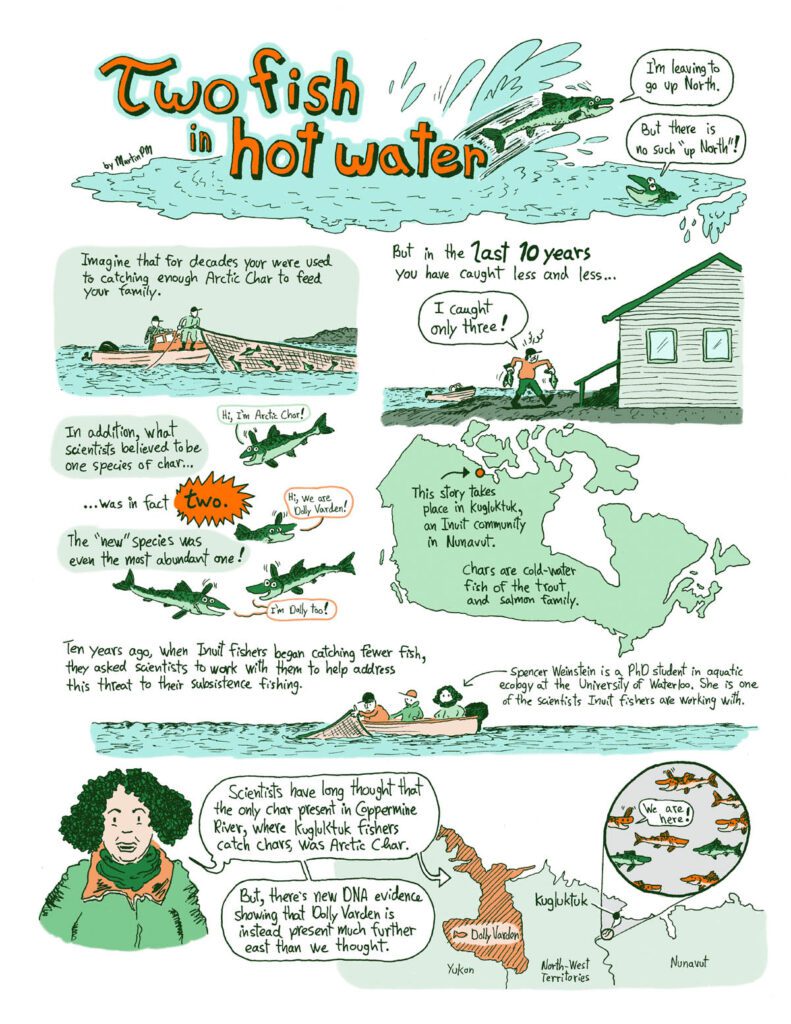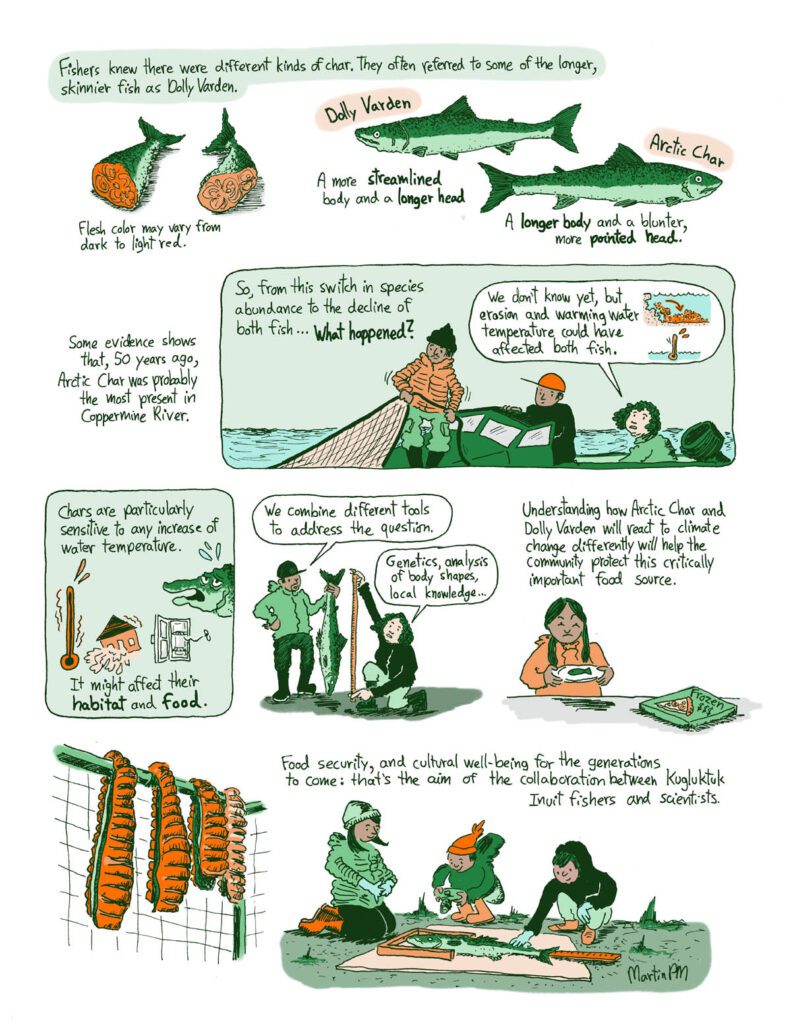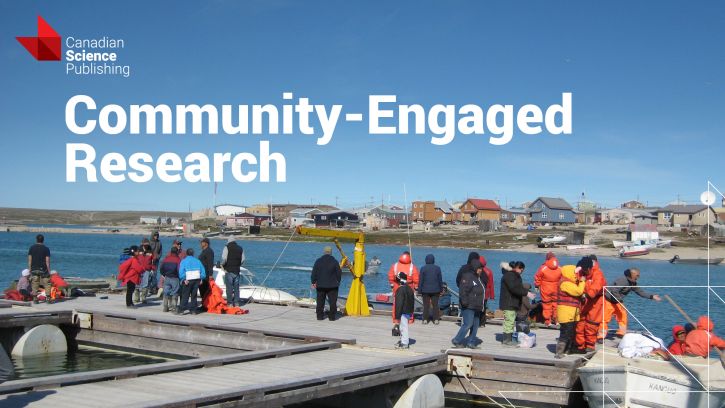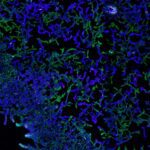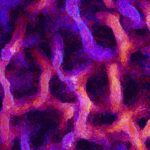In the Canadian Arctic, science meets art in an innovative initiative fostering communication between early-career researchers and northern communities. The Arctic Science to Art contest is a visionary project by the Association of Polar Early Career Scientists (APECS) Canada and the Association of Canadian Universities for Northern Studies (ACUNS) with funding support from ArcticNet. The contest was created to stimulate knowledge mobilization which, similar to science communication, interprets the technical methods and results of scientific research so that they are accessible to a wide audience across languages, cultures, and age groups. The program focuses on supporting interaction and engagement between arctic communities and researchers while promoting impactful science.
Early-career researchers (ECRs) working in northern Canada submit a summary of their research and a photo that captures their work. Winners are selected through criteria emphasizing impact and community-relevance. The winning researcher then collaborates with an established science communicator or designer to create a publicly accessible and engaging art piece, such as a multi-panel comic. Any text is translated into English, French, and at least one Indigenous language or regional dialect. The art is incorporated into a scientific conference-style poster and public engagement products, such as postcards, flyers, and even playing cards. The poster is given its debut at the ArcticNet Annual Scientific Meeting, and it and the other outreach materials are distributed in the communities for which the research has the greatest impact.
While applications have come from a variety of disciplines, marine topics have earned the limelight thus far. The 2023 winner, Myrah Graham, an MSc candidate from the Marine Institute of Memorial University of Newfoundland, and the 2022 winner, Spencer Weinstein, who recently finished her PhD at the University of Waterloo and is currently an Alaska Sea Grant State Fellow, worked with science communicators to translate their research on marine life into regionally relevant storytelling materials customized for the communities they work in.

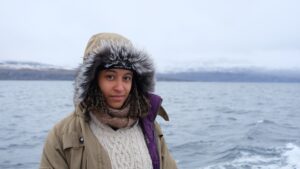 Myrah’s research uses multibeam sonar and underwater cameras to create benthic habitat maps. Myrah and her team lower cameras to the bottom of coastal bays and fjords. Sometimes going as deep as 500m, bright lights illuminate these particular communities of organisms for the first time in history and allow researchers to identify and map the habitat. The resulting maps help identify biodiversity hotspots and guide decision-making. Local governments can use the maps to ensure appropriate management of these delicate seafloor communities and can provide harvesters and commercial fisheries with important information about benthic foods such as scallops and clams. Healthy benthic communities support healthy fish populations, providing important nursery grounds and nutrient cycling to higher trophic levels.
Myrah’s research uses multibeam sonar and underwater cameras to create benthic habitat maps. Myrah and her team lower cameras to the bottom of coastal bays and fjords. Sometimes going as deep as 500m, bright lights illuminate these particular communities of organisms for the first time in history and allow researchers to identify and map the habitat. The resulting maps help identify biodiversity hotspots and guide decision-making. Local governments can use the maps to ensure appropriate management of these delicate seafloor communities and can provide harvesters and commercial fisheries with important information about benthic foods such as scallops and clams. Healthy benthic communities support healthy fish populations, providing important nursery grounds and nutrient cycling to higher trophic levels.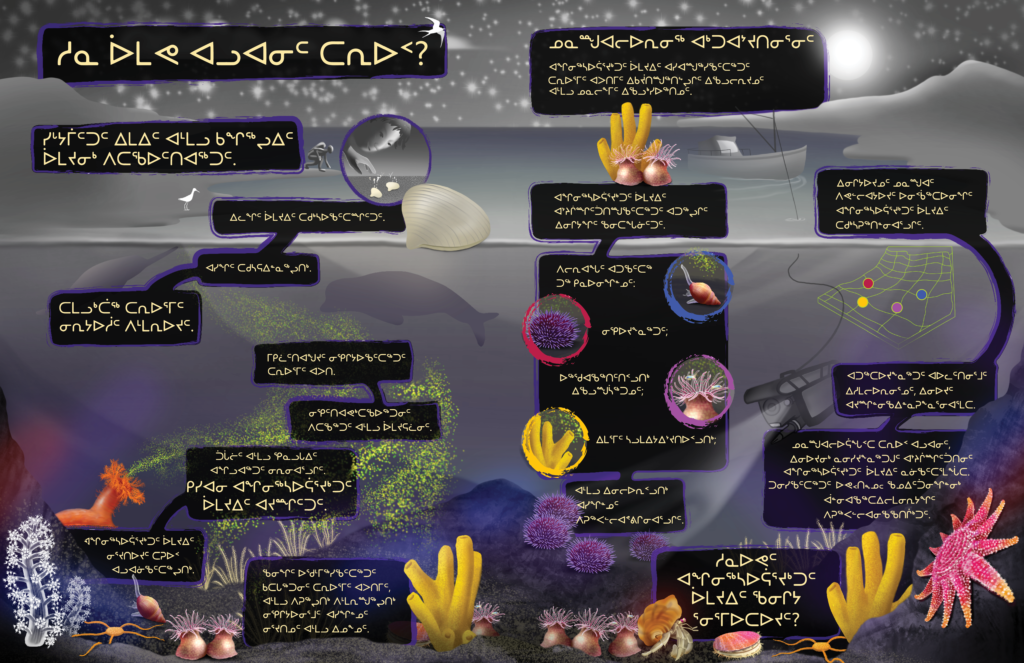
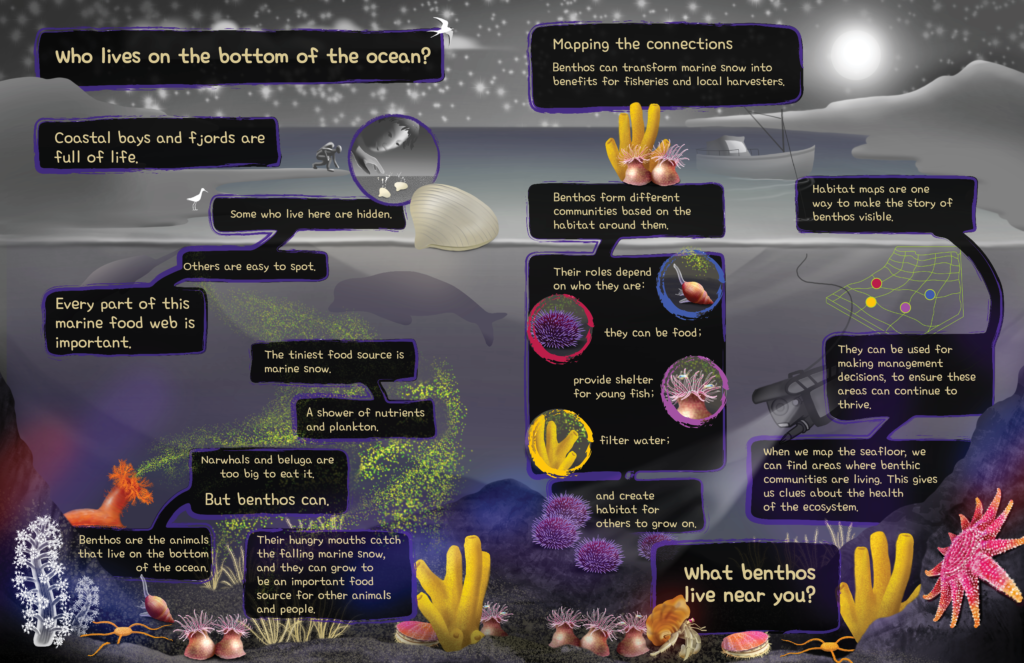
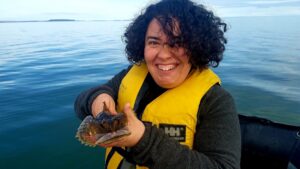 Spencer’s research at the University of Waterloo combines western science and traditional knowledge to assess char populations in the Coppermine River. The Coppermine River supports a subsistence char fishery for the community of Kugluktuk, Nunavut. As in the rest of the Canadian Arctic, the area is being impacted by a rapidly changing climate, and the community has noticed differences in the char populations returning from summer migration. The number and appearance of char have changed, and Spencer works to document and evaluate this diversity and possible impacts on the subsistence fishery. Knowledge of species diversity, as well as habitat and resource use, is critical for developing conservation and management plans that can be flexible in the face of climate-induced changes. Spencer partnered with Montreal-based artist Martin Patenaude Monette, an illustrator of scientific and socio-political content, to illustrate her work in the first offering of the contest. The resulting two-page comic, “Two Fish in Hot Water,” provides an eye-catching summary of the motivation and goals behind Spencer’s research, and is available in English, French, and Inuinnaqtun.
Spencer’s research at the University of Waterloo combines western science and traditional knowledge to assess char populations in the Coppermine River. The Coppermine River supports a subsistence char fishery for the community of Kugluktuk, Nunavut. As in the rest of the Canadian Arctic, the area is being impacted by a rapidly changing climate, and the community has noticed differences in the char populations returning from summer migration. The number and appearance of char have changed, and Spencer works to document and evaluate this diversity and possible impacts on the subsistence fishery. Knowledge of species diversity, as well as habitat and resource use, is critical for developing conservation and management plans that can be flexible in the face of climate-induced changes. Spencer partnered with Montreal-based artist Martin Patenaude Monette, an illustrator of scientific and socio-political content, to illustrate her work in the first offering of the contest. The resulting two-page comic, “Two Fish in Hot Water,” provides an eye-catching summary of the motivation and goals behind Spencer’s research, and is available in English, French, and Inuinnaqtun.